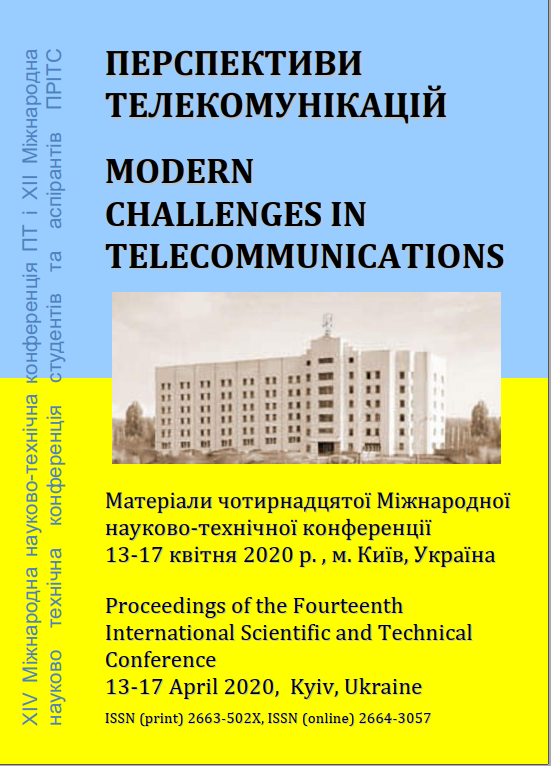TEMPERATURE MONITORING SYSTEM IN IOT NETWORK BASED ON ESP8266 MICROCONTROLLER AND THINGSPEAK SERVICE
Ключові слова:
IoT, sensor, temperature, microcontrollerАнотація
Система моніторингу температури в мережі IoT
на базі мікроконтролеру ESP8266 та сервісу ThingSpeak
В роботі обговорюється проблеми підвищення температури в Україні та необхідність її моніторингу та використання технології Інтернет речей для контролю температури. Проаналізовано перспективи Інтернет речей в найближчі 25 років. Описано схему мережі системи моніторингу температури, її елементи та принцип роботи. Створена практична макетна модель на базі цифрового датчика температури, мікроконтролеру Node MCU ESP8266, вентилятору та сервісу ThinkSpeak.
Посилання
Mr. R. Deekshath, Ms. P. Dharanya, Ms. K. R. Dimpil Kabadia, Mr. G. Deepak Dinakaran, “IoT Based Environmental Monitoring System using Arduino UNO and Thingspeak”, International Journal of Science Technology & Engineering, 2349-784X, 2018.
Twinkle Gondaliya1, “Sensor communication in Smart Home Using IoT”, International Institution for Technological Research and Development, 2016.
Атака «розумних» речей [Електронний ресурс: http://nag.ru/articles/article/30371/ataka-umnyih-veschey.html].
DS18B20 – датчик температуры с интерфейсом 1-Wire. Описание на русском языке. [http://mypractic.ru/ds18b20-datchik-temperatury-s-interfejsom-1-wire-opisanie-na-russkom-yazyke.html].
Датчик температуры Arduino DS18B20 [https://arduinomaster.ru/datchiki-arduino/arduino-ds18b20/].
DS18B20 Temperature Sensor with ESP8266 and ThingSpeak [https://www.electronicshub.org/ds18b20-temperature-sensor-with-esp8266/].
Khin Kyawt Kyawt Khaing, “Temperature and Humidity Monitoring and Control System with Thing Speak”, International Journal of Scientific Research and Engineering Development, 2019.
##submission.downloads##
Як цитувати
Номер
Розділ
Ліцензія
Авторське право (c) 2020 Anton Shevchuk, Oleksandr Romanov

Ця робота ліцензується відповідно до Creative Commons Attribution 4.0 International License.
Authors who submit to this conference agree to the following terms:a) Authors retain copyright over their work, while allowing the conference to place this unpublished work under a Creative Commons Attribution License, which allows others to freely access, use, and share the work, with an acknowledgement of the work's authorship and its initial presentation at this conference.
b) Authors are able to waive the terms of the CC license and enter into separate, additional contractual arrangements for the non-exclusive distribution and subsequent publication of this work (e.g., publish a revised version in a journal, post it to an institutional repository or publish it in a book), with an acknowledgement of its initial presentation at this conference.
c) In addition, authors are encouraged to post and share their work online (e.g., in institutional repositories or on their website) at any point before and after the conference.

